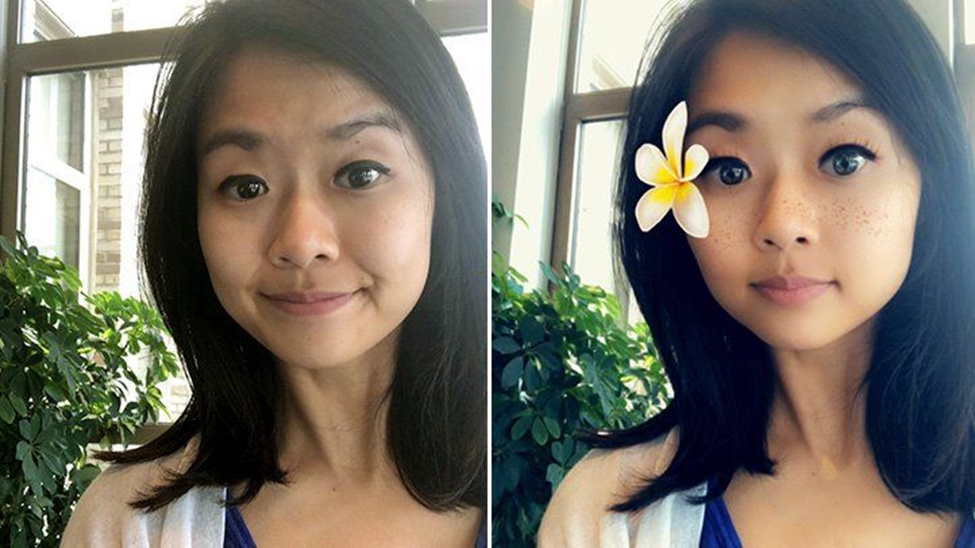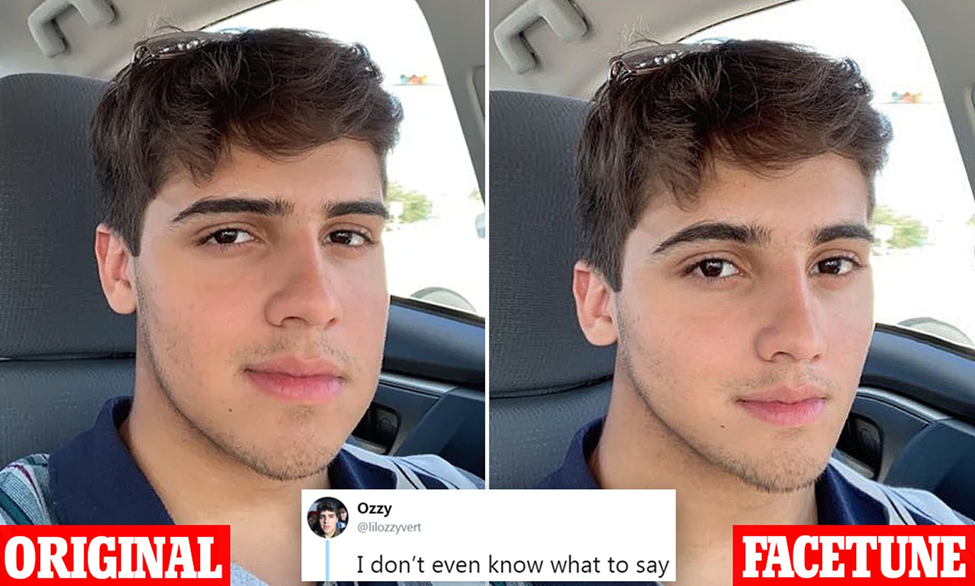- Author: GREAT MASTER VIKRANT ROHIN
- Date: MAY 3, 2023
If you: Preoccupy a specific area of your body (especially your face) a lot, spend a lot of time comparing your looks to other people’s. Look at yourself a lot in mirrors or avoid mirrors altogether. So stop it, my dear friend, you are suffering from an inferiority complex, and that inferiority complex has been planted in your mind by some people who want to destroy your real personality.
Facetuning is a method by which you can change your facial features to make them look better.
Facetune /Faceapp is a photo editing application used to edit, enhance, and retouch photos on a user’s iPhone, iPad, Android or Windows Phone device.
Dangerous Side Effects
SnapChat Dysmorphia
- It is a body-image disorder characterized by the need to heavily edit one’s own digital image. At its most severe, the disorder may cause people to seek out cosmetic procedures in order to replicate the altered images they present online
- Dr. Tijion Esho, a British physician known for performing cosmetic procedures, coined the term Snapchat dysmorphia after becoming aware that an increasing number of patients were bringing heavily-edited Selfies to their consultation appointments instead of celebrity photos, as was generally the practice in the past. Doctors have reported that patients who bring in heavily-edited selfies are often surprised to learn that their altered photographic results cannot be replicated in real life.
- The problem is that while digitally removing a double chin may be quick and pleasing to the eye, the resulting photo may not bear a great deal of resemblance to the person’s real-life appearance, and that disconnect can leave the selfie-taker feeling insecure.
- Dysmorphia itself is defined as an inability to view one’s own physical attributes objectively. This typically manifests as a conviction that there is something unacceptable about one’s appearance to others. That belief can evolve into an obsessive preoccupation with physical appearance and perceived flaws, a condition known as body dysmorphic disorder (BDD).

According To Recent Research Carried Out By Dove:
- 80% of girls said they had already applied a filter or used a retouching app to change the way they look in their photos by age 13. In simple words by the age of 13, 80% of girls distort the way they look online. Take a moment to let that sink in
- 80% said they compared the way they looked with others on social media
- 77% tried to change or hide at least one body part/feature before posting a photo of themselves
- Girls who distort their photos are more likely to have low body esteem (48%) compared to those that don’t distort their photos at all (28%)
- “Girls all around the world have begun to feel the pressure to edit and distort how they look, to create something ‘perfect’, which cannot be achieved in real life,” reflects Alessandro. “After a year of increased screen time, there’s never been a more important time to act.”
- Nicknamed ‘generation selfies’, young people are more likely to suffer low self-esteem as a result of social media. A veteran social campaigner, Dove is on a mission to use its power and influence to combat the harmful impact selfie culture has on young girls before the problem becomes endemic. The team behind ‘Reverse Selfie’ talks The Drum through their plan of action.
- Source: https://www.unilever.com/news/news-search/2021/behind-the-selfie-reversing-the-damage-of-digital-distortion/
What Are The Health Complications Of Face Tuning Or Snapchat Dysmorphic Disorder?
People who have SDD are more likely to have certain other mental health conditions, including:
- Anxiety disorder
- Eating disorder
- Obsessive-compulsive disorder
- Substance use disorder (including steroid use disorder in people with muscle dysmorphia).
- Teens may easily feel dissatisfied if they don’t look fit and beautiful like others on Snapchat. The dissatisfaction may lead to a number of mental health conditions.
- Another issue with Snapchat is cyberbullying.

Law Against Face Tuning
NORWAY
A new law in Norway is coming into force that will mean social media influencers can’t post modified photos without declaring what they’ve done. The rules will affect any paid posts across all social media platforms, as part of an effort to “reduce body pressure” among young people.
FRANCE
France could make it mandatory for influencers to label their filtered Instagram photos — to ‘limit the destructive psychological effects’ they have on viewers
France could make it mandatory for influencers to note if a photo or video they posted was retouched or filtered.
In a press conference on Friday, France’s Finance Minister Bruno Le Maire said the country is the first European nation to create a comprehensive framework for regulating the influencer sector.
“We will make it mandatory to display the use of a filter or retouching on photo and video content during a paid partnership,” Le Maire’s account tweeted on March 24, explaining that they sought to “limit the destructive psychological effects” the practices had on internet users.
BRITAIN
There was a bill proposed by MPs in the UK to make it compulsory for people to declare altered images – but it never made its way through Parliament.
‘We need this law’
Madeleine Pedersen, 26, is an Instagram influencer from Moss in Norway.
She tells Radio 1 Newsbeat it’s “about time” the rules were changed and hopes the law will stop young people from comparing themselves to unrealistic images.
“There are so many people that are insecure about their body or face,” she says.
“I have struggled with body issues because of Instagram, back in the day.
“The worst part is that I don’t even know if the other girls I looked up to did edit their photos or not. That’s why we all need answers – we need this law.”
A study by UK MPs last year found that the majority of under-18-year-olds said social media images were “extremely influential” on their body image.
Only 5% of those under 18s in the survey said they wouldn’t consider changing their appearance by doing things like dieting or getting surgery
“All the indicators are showing mental health problems, anxiety disorders, eating disorders, it’s all on the rise,” she says.



